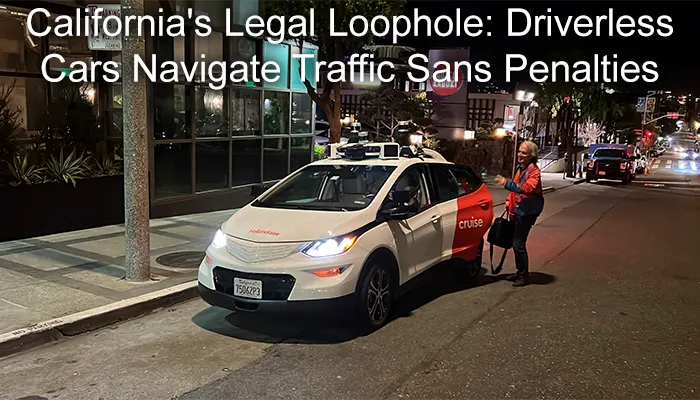Introduction
In tonight’s report, we delve into the increasing trend of communities test-driving autonomous cars. While many areas embrace this futuristic tech, California stands out with a peculiar legal loophole that lets driverless vehicles off the hook for traffic violations. Bigad Shaban from our Bay Area NBC station investigates the implications.
The Challenge
Driverless cars, in their trial phase, have run red lights, collided with other vehicles, and even swerved into construction zones. These so-called “robo taxis” often can’t follow police orders, creating a conundrum when traffic laws are broken and there’s no human behind the wheel.
Legal Differences
In places like Texas and Arizona, where autonomous cars are common, companies can be fined for violations. However, in California, a unique scenario unfolds. Traffic tickets can only be issued if there’s an actual human driver present, rendering the driverless vehicles exempt from fines.
Enforcement Dilemma
The lack of specific laws for autonomous cars in California poses challenges for law enforcement. Even when driverless cars break road rules, there’s little that law enforcement can do. Michael Stevenson, a California attorney, suggests an overhaul of existing laws to address the growing presence of driverless cars.
Regulatory Updates
California’s Department of Motor Vehicles (DMV) acknowledges the need for change and is working on updating regulations. This move aims to establish clearer rules for driverless cars, potentially closing the legal gap that currently exists.
Industry Response
Two major players in the autonomous vehicle industry, GM’s Cruise and Google’s Waymo, have had different experiences. While Waymo actively shuttles passengers and boasts a clean track record, Cruise faced regulatory challenges, prompting them to pull their 400 driverless cars off the U.S. roads. The industry is at a crossroads, navigating public trust and regulatory scrutiny.
Safety Concerns
Despite assurances from Waymo and Cruise about the safety of their autonomous cars, questions linger. With no reported deaths in their fleets, the industry touts millions of miles traveled. However, critics argue that this might not be sufficient, considering human drivers cause an average of one death every 100 million miles.
Ethical Considerations
As driverless cars share the road with human drivers, pedestrians, and cyclists, ethical concerns arise. The Ethics Program at Santa Clara University emphasizes that communities are unwittingly becoming test courses for these evolving technologies, underlining the importance of ethical considerations in autonomous vehicle development.
Conclusion
The journey of autonomous vehicles in California faces legal uncertainties and safety debates. With the DMV actively working on regulatory updates, the future may bring clearer guidelines for the autonomous car industry. As communities grapple with the integration of this innovative tech, the road ahead remains a mix of excitement and cautious optimism.


